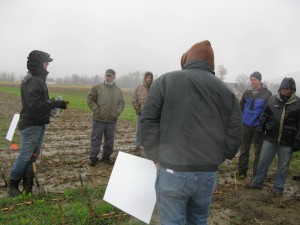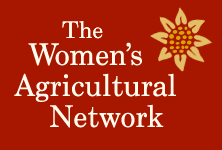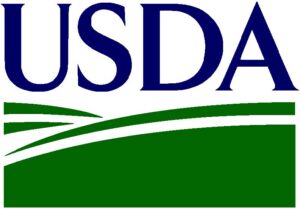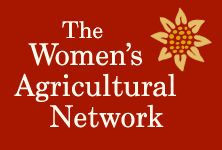In my Social Sustainability on the Farm project, we’ve been looking at the social issues farmers face; so I have been thinking about healthy farmer relationships—both personal and professional. And since I work for UVM Extension, naturally I wonder about our connections with farmers; how can we, in Extension, be most helpful to farmers and the public at large? What’s our role(s)? And, what makes a good Extension educator good?
An interview with colleague and fellow WAgN blogger Kirsten Workman provided some answers. Kirsten is an Outreach Agronomy Professional with the Champlain Valley Crops, Soil & Pasture Team housed in Middlebury. As one of our newest “movers and shakers” in Extension, it was fun to learn how excited Kirsten is to be an Extension educator and how she views her work in the agricultural community.
Kirsten uses terms like “convener,” “interpreter,” and “ombudsperson” to describe her role. Like most in Extension, she conducts on-farm demonstrations, field research, workshops and other educational events. But it is fostering the connections with and among farmers that makes her job most meaningful. She talks about the value of bringing folks to the table and figuring things out together. She points out the importance of meeting farmers where they are–both physically and educationally–and addressing their questions without judgement.
“One of the key things about my job is understanding where people are coming from,” she said. “As a former farmer myself, I really respect what farmers do on a day-to-day basis. It is not easy to farm in this challenging climate, and so I approach each farm–from the 5 acre vegetable operation to the LFO [large farm operation]–by thinking about how can I be most helpful to them where they are at right now. For one farm, that might mean helping them fill out some paperwork; for another, it might be exploring how a certain cover crop performs in their soils.”

Meeting farmers where they are. On a cold & rainy November day, Kirsten leads a field day featuring her cover crop variety trials in silage corn acreage.
Kirsten’s “guide by your side” approach differs from the traditional “sage on stage” expert-driven model. And academics who’ve studied Extension educational delivery methods contend that Kirsten’s approach is key to effective work. One research team led by Iowa State University’s Nancy Franz suggests that “…Agricultural educators must understand farmers’ needs and struggles and design programs to address them.” They say that Extension educators “…need to not only be experts in a particular subject matter but also be architects of relationships, learning processes, and environments that directly meet farmers’ needs to catalyze transformative learning.”
Whether you prefer the term “architect of relationships” or “an advocate for farmers and advocate to farmers” as Kirsten does, it seems clear that what makes a good Extension educator good is the building of trusting relationships with and among farmers and the greater community.







